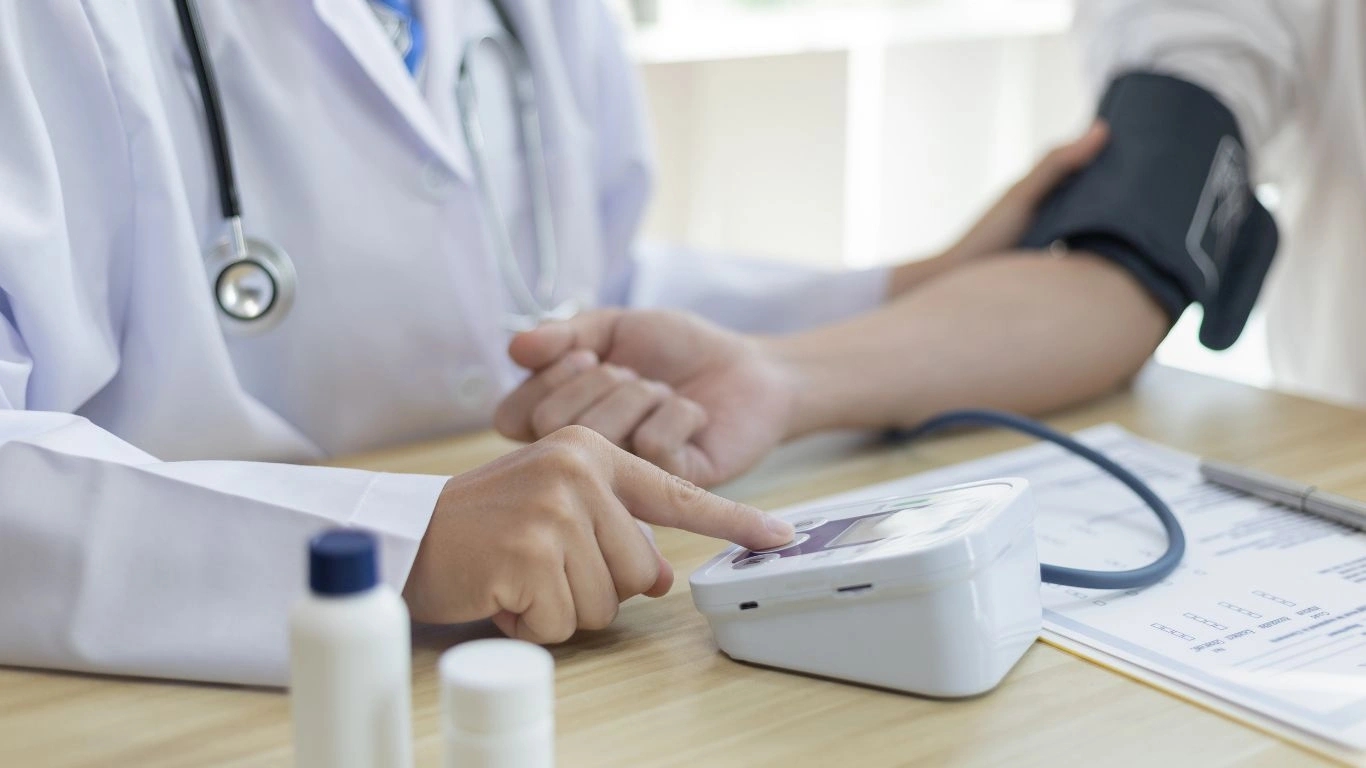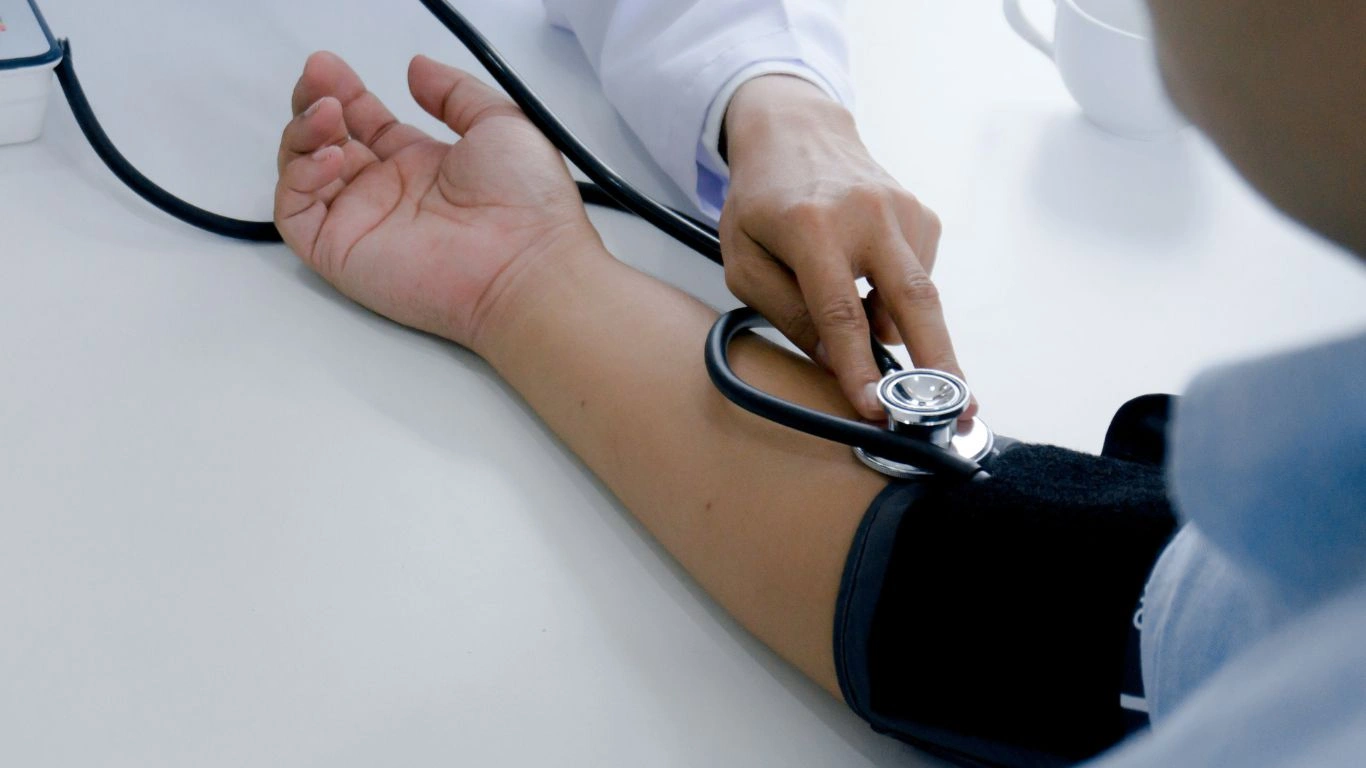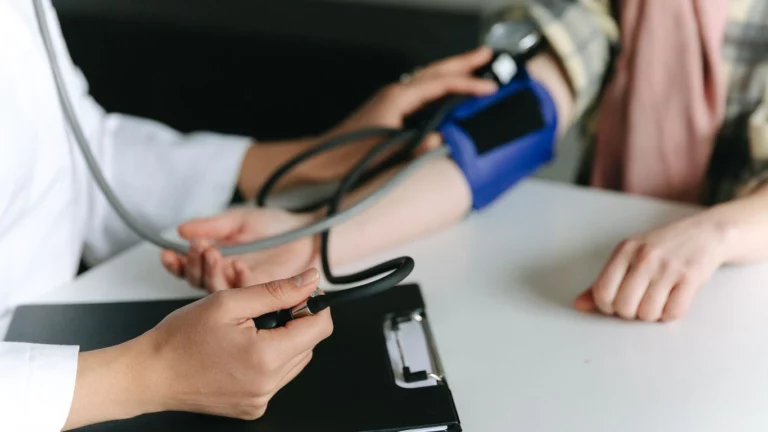How Seasonal Allergies Impact Hypertension – What You Need to Know
Ever wonder if your seasonal allergies could mess with your blood pressure? Let’s break it down, so you know exactly what’s going on and how to handle it.
 If you’re dealing with seasonal allergies, you already know the drill—runny nose, itchy eyes, constant sneezing. It’s like your body’s way of throwing a hissy fit over pollen, mold, or whatever’s floating in the air. But what you might not realize is how those annoying symptoms could affect something totally unrelated: your blood pressure. Yep, there’s a connection. In this article, we’re digging into how seasonal allergies might impact hypertension, the reasons behind it, and how you can keep both under control without losing your mind.
If you’re dealing with seasonal allergies, you already know the drill—runny nose, itchy eyes, constant sneezing. It’s like your body’s way of throwing a hissy fit over pollen, mold, or whatever’s floating in the air. But what you might not realize is how those annoying symptoms could affect something totally unrelated: your blood pressure. Yep, there’s a connection. In this article, we’re digging into how seasonal allergies might impact hypertension, the reasons behind it, and how you can keep both under control without losing your mind.
What Are Seasonal Allergies?
Let’s start with the basics. Seasonal allergies (aka hay fever or allergic rhinitis) happen when your immune system overreacts to allergens like pollen, grass, or mold spores. Your body releases histamines, which trigger all those classic allergy symptoms.  Some people get hit harder than others, and depending on the time of year, different allergens might be causing the problem. Spring brings tree pollen, summer means grass pollen, and fall often comes with ragweed pollen.
Some people get hit harder than others, and depending on the time of year, different allergens might be causing the problem. Spring brings tree pollen, summer means grass pollen, and fall often comes with ragweed pollen.
How Do Seasonal Allergies Affect Blood Pressure?
So, how does sneezing and wheezing tie into hypertension (high blood pressure)? Here are a few ways these two might be linked:
1. Stress From Symptoms
Seasonal allergies can be miserable—think constant fatigue, poor sleep, and that fuzzy, congested feeling that makes focusing hard. This stress on your body can lead to increased blood pressure. When you’re feeling stressed, your heart works harder, and your blood vessels constrict.
2. Decongestant Medications
If you’ve ever reached for over-the-counter allergy meds, you might’ve noticed some of them contain decongestants like pseudoephedrine or phenylephrine. These meds help clear up your stuffy nose by narrowing blood vessels, but that can also raise your blood pressure.
3. Inflammation and Cardiovascular Health
Chronic inflammation from allergies might affect your cardiovascular system over time. Some studies suggest a link between inflammation and higher blood pressure, though this is still an area of ongoing research.
Tips for Managing Allergies Without Worsening Hypertension
 Okay, so you’re dealing with allergies and hypertension—what now? The good news is that with some smart strategies, you can manage both.
Okay, so you’re dealing with allergies and hypertension—what now? The good news is that with some smart strategies, you can manage both.
1. Choose Allergy Medications Carefully
Not all allergy meds are created equal. Avoid decongestants if you have high blood pressure, and opt for antihistamines instead. Look for options like loratadine (Claritin) or cetirizine (Zyrtec) that don’t affect your blood pressure.
2. Keep an Eye on Your Diet
High-sodium foods can spike your blood pressure, so stick to a low-sodium diet, especially during allergy season. Also, anti-inflammatory foods like salmon, spinach, and nuts can help combat inflammation from allergies.
3. Stay Hydrated
Dehydration can make allergy symptoms feel worse and impact your blood pressure. Drinking enough water helps your body flush out allergens and keeps your cardiovascular system happy.
4. Use Non-Medication Allergy Remedies
Consider using a saline nasal spray, a HEPA air filter, or even a humidifier to help reduce allergy symptoms without relying solely on medication.
5. Keep Stress in Check
Stress management is key for both allergies and blood pressure. Try relaxation techniques like yoga, meditation, or just taking time for yourself to decompress.
When to See a Doctor
 If your allergies or blood pressure seem out of control, it’s time to call in the pros. Talk to your doctor or allergist if:
If your allergies or blood pressure seem out of control, it’s time to call in the pros. Talk to your doctor or allergist if:
- You’re getting severe allergy symptoms that don’t improve with over-the-counter treatments.
- Your blood pressure is consistently high, even with medication.
- You’re unsure which allergy meds are safe for hypertension.
Conclusion
Seasonal allergies and hypertension might not seem connected at first, but they can definitely influence each other. The key is to be proactive. Manage your allergy symptoms wisely and make heart-healthy choices to keep your blood pressure in check. You’ve got this!
References
- American Heart Association (2024). “How Allergies Affect Cardiovascular Health.” Read More
- National Institute of Allergy and Infectious Diseases. “Pollen Allergies Overview.” Read More
- Smith, J. (2023). “Chronic Inflammation’s Effect on Blood Pressure.” Journal of Medical Studies, Vol. 45, Issue 2. Read More
FAQs
- Can allergy meds raise blood pressure? Yes, decongestants like pseudoephedrine can raise blood pressure.
- Which antihistamines are safe for hypertension? Loratadine and cetirizine are generally safe.
- Can seasonal allergies worsen hypertension symptoms? Indirectly, due to stress and inflammation.
- Should I avoid all allergy meds with hypertension? No, but consult your doctor first.
- How do I manage allergies naturally? Use saline sprays, air filters, and stay hydrated.
Disclaimer
This article is for informational purposes only and does not replace medical advice. Consult a healthcare professional for personalized guidance.












